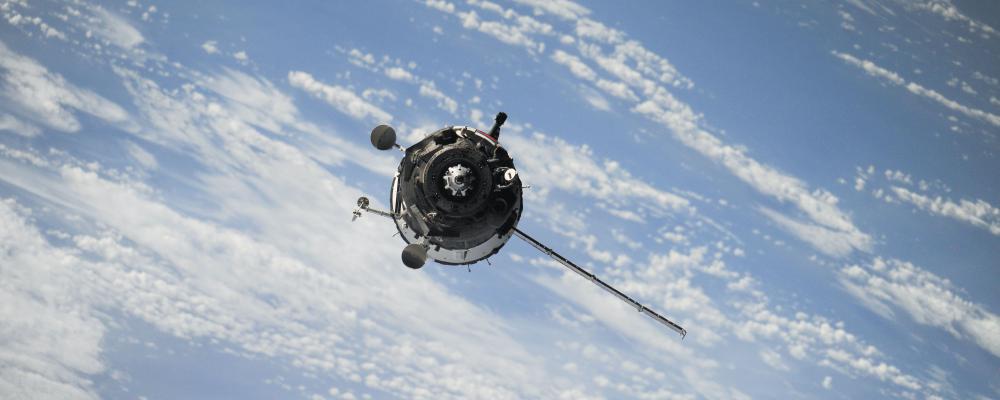
WASHINGTON (June 13, 2022) — The voice of more than 45,000 current and former National Guard officers has appealed to President Joe Biden to reconsider the White House Office of Management and Budget’s opposition to creating a Space National Guard.
The Defense Department was close to proposing Space National Guard as a component of the U.S. Space Force until last fall, when OMB unexpectedly announced opposition to the idea.
The OMB position was based on cost, but its calculations could prove costly to the nation, retired Brig. Gen. J. Roy Robinson, the NGAUS president, told the president in a June 7 letter.
“The OMB incorrectly presumed that every state would stand up Space National Guard units, which greatly inflated its cost projections,” Robinson wrote. “In fact, a Space National Guard at its inception would include only 1,000 space professionals in 14 units across eight states and territories.
“The start-up cost, according to the Pentagon, would be approximately $250,000 — the price to change signs and uniform name tapes,” he explained. “The personnel are already on the payroll and the equipment and facilities are in place. A Space National Guard could grow in the future, but only to meet requirements specified by the Space Force.”
Congress has the final say, and lawmakers are currently deliberating the matter. There is legislation in the House and the Senate that would create a Space National Guard. But lingering OMB opposition hangs over discussions and often prevents Pentagon officials from offering candid assessments.
Robinson said the relatively tiny investment in a Space National Guard now would prevent the nation from paying a far greater price later.
“The more damaging costs are those our nation will incur if, as the OMB directed, space missions currently performed by the Air National Guard are transferred to a single component Space Force,” the NGAUS president wrote. “Some of these units have unique missions, such as the nation’s only survivable and endurable missile warning and nuclear detection system. These units will have to be rebuilt completely from scratch, which will take several years and could cost hundreds of millions of dollars. In the interim, the nation will go without some critical capabilities.”
Gen. John W. “Jay” Raymond, the Space Force’s chief, has said numerous times the nation cannot accomplish military space missions without Air National Guard space units.
The immediate challenge is these space units are currently aligned to the Air Force, which no longer performs space operations. This creates resourcing issues plus administrative and operational control problems.
Should space units be removed from the Air National Guard, as the OMB directs, the nation will not only lose some of its most talented and experienced space professionals in uniform, but also much of its ability to tap civilian-acquired skills in the future, Robinson said.
“As a member of a National Guard family,” he wrote, “you know better than most that the National Guard is a vehicle enabling professionals outside the active-component military to serve their country in uniform part time and when our nation needs them most. And as you also know, the National Guard connects America to its military like no other component of the Armed Forces.”
Some governors will also lose domestic-response capabilities, Robinson wrote. Air National Guard space units have provided critical eyes in the sky during floods and wildfires in recent years.
Reporters, Editors & Producers: Retired Brig. Gen. J. Roy Robinson is available for interviews or to appear as a subject matter expert on issues related to the National Guard. Contact John Goheen at 202-408-5882 or john.goheen@ngaus.org to schedule an interview or appearance.
About NGAUS: The association includes more than 45,000 current or former Guard officers. It was created in 1878 to provide unified National Guard representation in Washington. In their first productive meeting after Reconstruction, militia officers from the North and South formed the association with the goal of obtaining better equipment and training by educating Congress on Guard requirements. Today, 144 years later, NGAUS has the same mission.
